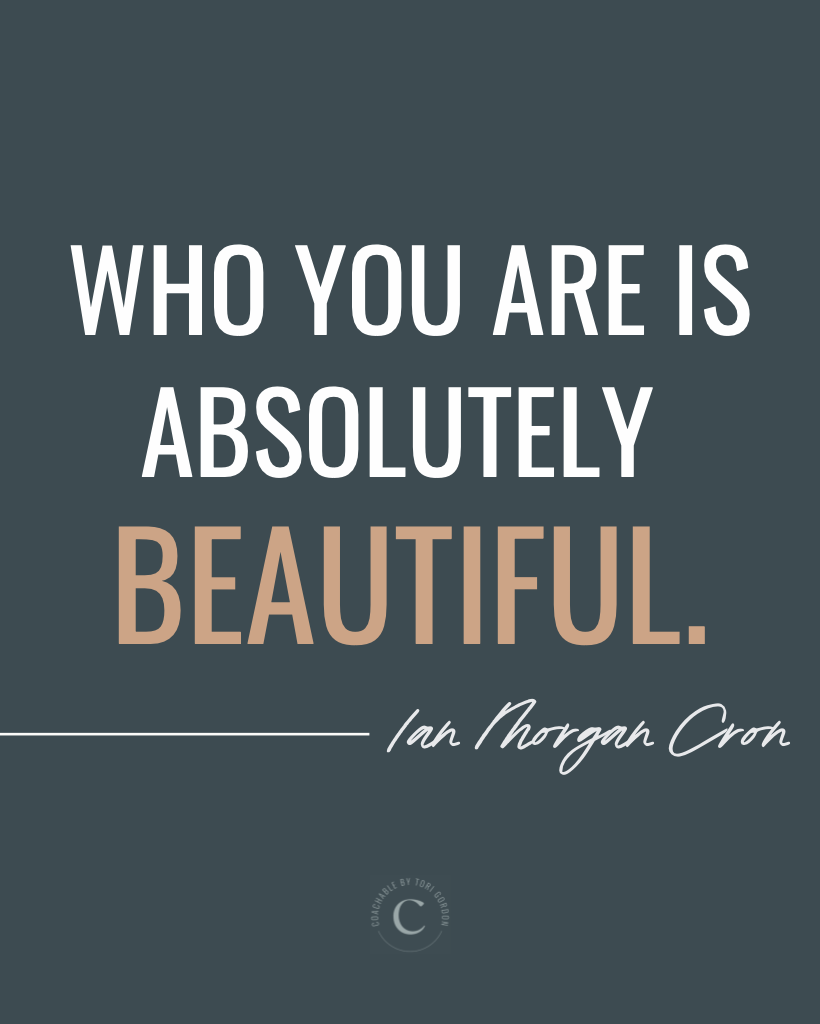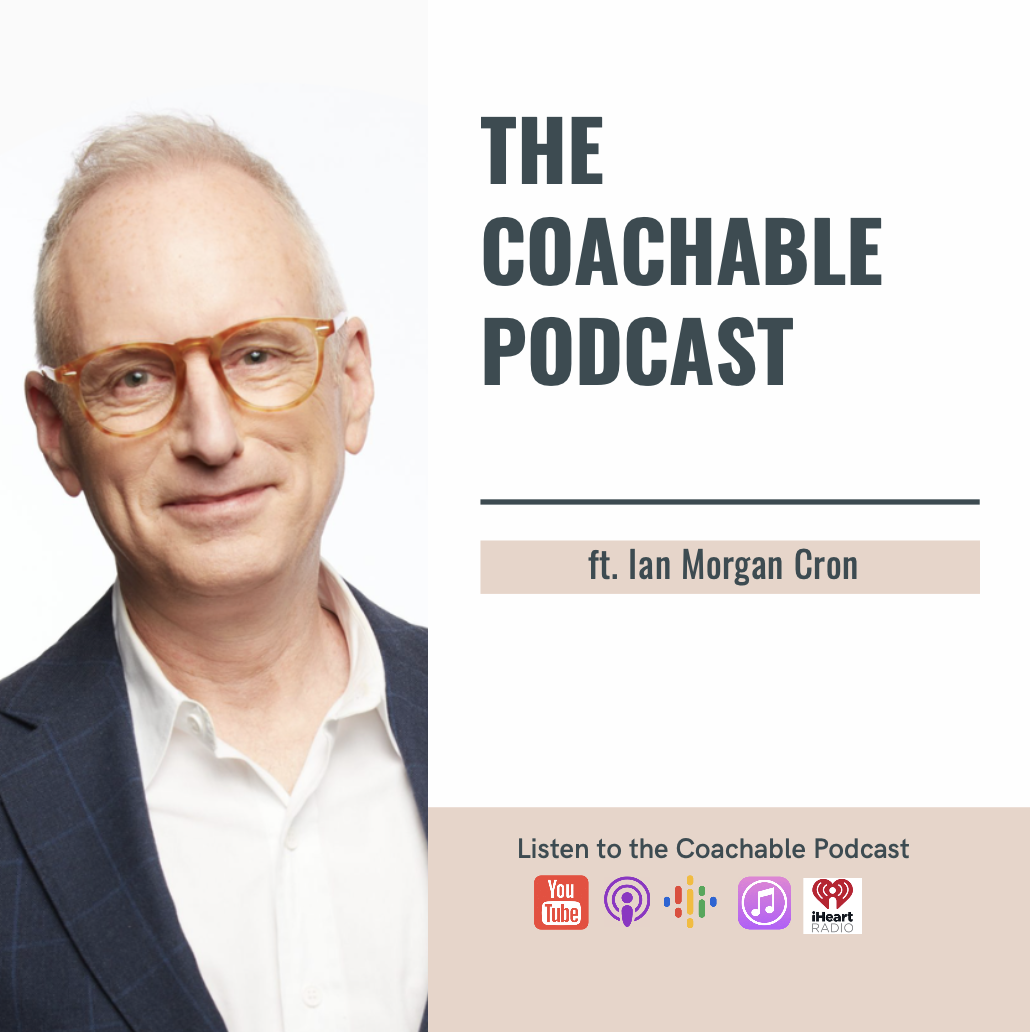Identify Your Enneagram Number: How to Rewrite Your Story
“Be Yourself- Everyone else is already taken.”
The Enneagram is one of the single greatest tools I’ve ever discovered to increase self awareness and learn how to be our authentic selves in the world.
Ian Morgan Cron, the host of the Typology podcast and author of The Road Back To You and The Story of You: An Enneagram Journey to Becoming Your True Self, taught us uncover how each enneagram type can help us understand ourselves and others better. As a byproduct, we can re-write our stories and become the best version of ourselves.
What is the Enneagram?
The enneagram is a personality typing system that teaches us about the 9 different types of personality types in the world. We each have all nine, but we all have one dominant type. Your primary enneagram type is the one we gravitate towards and adopt in childhood to cope and navigate relationships.
Each of the 9 types have an unconscious motivation that powerfully influences how that personality habitually and predictably acts, thinks, and feels moment to moment.
Identifying your enneagram number can sometimes feel uncomfortable – like someone who’s looked through your mail – but it will help you to understand more about yourself, your pitfalls, and your gifts, and help you to have compassion and empathy towards others as well.
This is different from your average personality test. The enneagram gives us a full picture of not only what we do but WHY we do it.
The 9 Personality Types
Type 1: The Improvers or The Perfectionist
Improvers are ethical, dedicated and reliable. The one’s are motivated by a desire to live the right way and have an unconscious need to improve themselves, others, and the world to avoid fault and blame and criticism. The story they tell themselves has to do with their beliefs in being perfect. They believe that in order to feel safe, have the ability to affect the environment, and be loved, they have to be perfect.
Type 2: The Helpers
Helpers are often warm, supportive, generous, kind, and self-sacrificing. Two’s are motivated by a need to be loved and needed. They have an unconscious desire to be liked, and their strategy to becoming liked is to fulfill your needs- even if that means disavowing their own.
Their broken story revolves around not being able to acknowledge their own needs. They tend to acknowledge the needs of others by helping, always being there, and always being bubbly and positive while doing it. They have to learn that they can be loved outside of what they do for others.

Type 3: The Performers / The Achievers
Achievers are productivity machines. They are ambitious, competitive and success oriented and have learned how to get the most work done. Their unconscious motivation has to do with a powerful need to succeed, appear successful, and avoid failure at all costs.
They see a world that tends to value people more for what they accomplish than for who they are inside. They sometimes confuse success and admiration with love.
Type 4: The Individualists / The Romantic
Individualists are referred to by Ian as the “unicorns of the enneagrams”- there are very few of them. They are empathic, creative, sensitive and moody and have rich imaginations. Four’s are motivated by a need to be understood, experience their big feelings, and avoid being “ordinary.”
Their broken story surrounds feelings that something essential is missing in their makeup. They feel like they are missing a crucial detail that everyone else seems to have. In order to compensate for that, they try to be special and unique.
Type 5: The Investigators
Investigators are analytical, detached, and private. They are very detailed-oriented, and also can be emotionally unavailable. People will think they are aloof and loners, and sometimes they are. Their unconscious motivation is the need to collect as much information and knowledge as possible in order to fend off feelings of inadequacy.
Their broken story fixates on the idea that the world makes too many demands and they have to hold on to their resources. They are committed to gaining knowledge, conserving energy and avoid relying on others.
Type 6: The Loyalists
The Loyalists are warm, supportive, practical, earthy, and often very witty. They are the “worst-case scenario” thinkers and are always scanning the horizon for the next possible catastrophe and preparing for it.
Their unconscious motivation is the need for safety, security, and certainty in a chaotic and unpredictable world. If they just prepare for the worst, they believe they will be safe.
Type 7: The Enthusiast
This type is full of great storytellers that are full of life. Fun, spontaneous, and adventurous, they are motivated by a need to be happy so much that they can be toxically positive. Seven’s have a deep-seeded fear of being trapped in uncomfortable and painful feelings, thoughts, or circumstances. They are constantly thinking of a future full of unlimited possibilities. They think of fun and adventure that can be used as an escape route from life when it gets too emotionally overwhelming.
The broken story of the seven deals with childhood trauma that can stem from situations where they need to take care of themselves because they believe no one else will.
Type 8: The Challengers
Commanding, intense, assertive, and blunt. The Challengers are people that feel larger than life and can easily come into a room and take it over. They have a strong need to assert strength and power over others and the environment in order to mask weakness and vulnerability in themselves.
Their broken story comes from the idea that we live in a dog-eat-dog world where the strong dominate the weak. They want to be the strongest person in the room.
Type 9: The Peacemakers
Pleasant, laid back and accommodating – The peacemakers need to preserve inner and outer peace. They go with the flow and don’t rock the boat, but it’s a means to connect with others and the strategy is to avoid conflict at all costs.
The broken story of the seven is that their presence doesn’t matter as much as others. They are supportive of others but struggle to find their own voice.
Learning about your enneagram is important, but you can learn more about others too.
This article is just the tip of the enneagram iceberg. Even if you got 10% more clarity about the inner experiences of yourself and others, that’s a giant leap forward.
It allows you to show up best for people. You can use what you know about them and their type to even accelerate a connection with someone.
You can change the narrative of your life.
We get attached to a story that tells us who we are. But what if we changed the narrative? Who would we be without it?
This opens up the opportunity to discover who you really are and who are you before you learned what you do.
If you’re ready to change your narrative, or would like to discover more about your enneagram type visit ianmorgancron.com. Take the Discover You Quiz, check out The Road to You, and take an Enneagram quiz! The payoff for committing to this work is everything.
You can listen to my most recent interview with Ian: How to Understand Yourself Using the Enneagram on The Coachable Podcast or watch the entire interview on our Youtube Channel. Please remember to leave a rating and a review wherever you listen to the show. Send us a screenshot of your review to support@torigordon.com to receive free access to my Find Your Purpose Workshop. I would also love to have you join us for a Monthly Breathwork session! This live breathwork class will teach you how to use breathwork to calm your nervous system, relieve stress and release stored-trauma from the body. I can’t wait to see you there.
July 7, 2022
